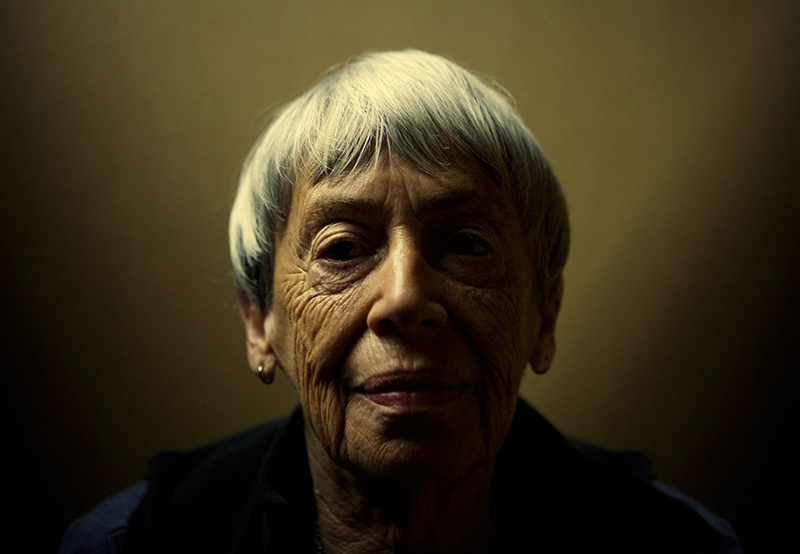Public Books has an interview with the great sci-fi writer and radical feminist Ursula K. Le Guin, in which she ranges over subjects that include Philip K. Dick, the power of fantasy literature, and the perils of modern fiction. Here’s an excerpt:
John Plotz (JP): When a writer creates an imaginary world, are readers traveling into the writer’s imagination? Or is it more that the book activates the reader’s own imagination?
Ursula Le Guin (UL): Both things happen, particularly with kids, which is why I think it’s important that kids get imaginative literature. As a writer I feel I’m taking the reader with me into this world that I see and discover, but of course I discovered that the readers make that world their own, and it’s sometimes quite, quite different from what I imagine. This comes out very clearly when I work with illustrators, and try to say, “No, no, that’s not what a dragon looks like!” You know, not my dragon. There always has to be a compromise.
JP: So the imaginary is a very definite place to you, with its own set of rules.
UL: I’m very strong on accuracy and exactitude. You can’t describe everything—that would be very boring. With an invented world, though, you have to describe more than a realist does. Of course, you have to leave out an enormous amount, too, and the leaving-out is half the art. There the reader is free to supply whatever they want to supply, to fill in all those white spaces that you leave.
I think sometimes in science fiction, more than in fantasy, the author wants you to see it just exactly the way the author sees it. Some people like to be coerced when they read, but I’d rather be given latitude. Tolkien is really such a master there. You know where you are, you know what the weather is, from what direction the wind’s blowing. He tells you what he can about it—but the rest of it’s up to you.
Image: Ursula K. Le Guin, via brainpickings.org.
